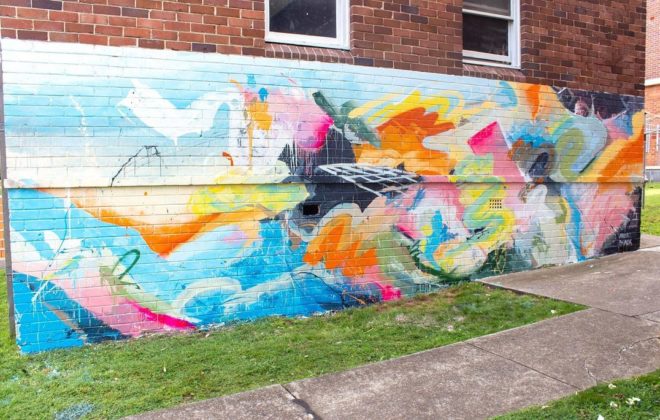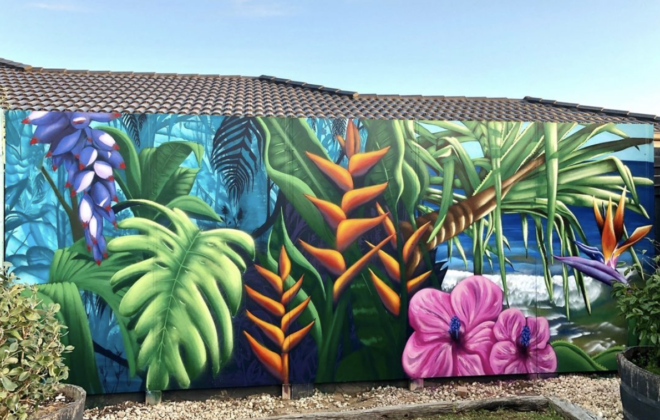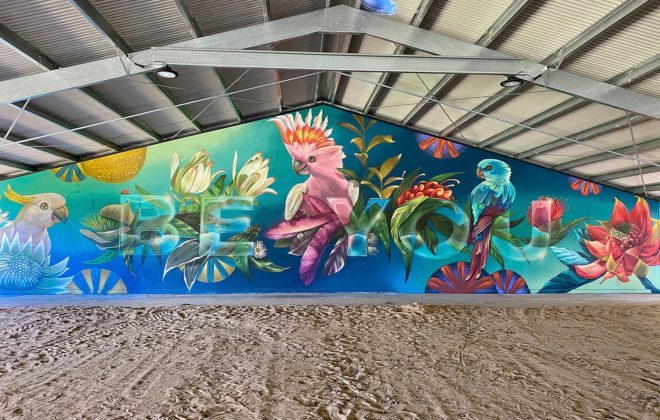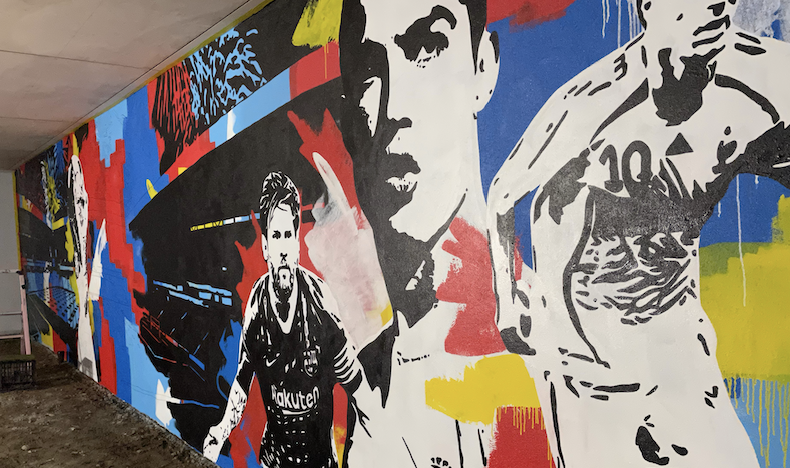
Artist Tips: How To Run A Successful Workshop or A Online Art Class
Book An Artist is sure you’ve received emails, messages and questions asking how it is you paint such marvellous creations. There is a pool of curious minds wanting to hire a artist, they follow you on social media and admire your work in the city streets. They want to know how you paint, draw, blend or map-out a project and they want you to teach them! Workshops can include one-on-one classes, group sessions, online/Zoom sessions, school programs, live events or festivals. Compiling your unique skills, artistic abilities, tips and tricks into a neat little box can be daunting (especially for those who haven’t taught before). Book An Artist has dipped its toe into the world of workshops – so we know how hard it can be to get the ball rolling. We asked mural master and workshop wonder woman, Sarah Sculley, to shed a little light on running successful workshops.
Why should an artist expand into running workshops?
“There was a clear demand. No one else was offering stencil workshops in Brisbane at the time, so my public workshops were selling out pretty quickly and schools were re-booking year after year. My obligation to give back. I feel that creating art can become a very egocentric way of working. I get stuck in my own head sometimes, but with workshops I am reminded that I am very fortunate to be able to do what I do and to see other people enjoying the creative process warms my heart.
“I remember being told when I was studying graphic design, that if we were going to run our own design business that it was important to diversify – have a range of clients and offerings rather than one massive client that contributes to 80% of the business income. If that one client goes under – so does your business. The same with a creative business – workshops are just one of my business offerings.”
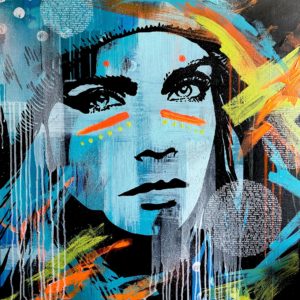


What are some must-do’s before organising a workshop?
“Have a clear understanding of what you’re teaching. Find your niche. If you’re anything like me, you assume everyone already knows how to do what you do – the truth is, they don’t. Once you have your idea of what to teach, make sure there aren’t 500 other people teaching the same workshops already. Bring something new to the workshop scene.
Then, map out how the workshop might run: introduction to your practise, materials needed, research/other practitioners, breaking down the process. This will help you figure out the length of the workshop, how much the materials will cost per person and the expected outcomes.”
How has COVID-19 affected the future of workshops?
“I’m a big talker – I use my arms a lot. I walk around the room. I might even go as far as saying that I’m a bit dramatic in my delivery of workshops. I’m also a doodle-talker. If I’m trying to explain an idea, I’ll draw it at the same time. It’s really hard to do this behind a screen. But I need to adjust – times are changing.
I have a small studio and no COVID-19 plan – so right now my workshops are on hold. My plan is to film a few workshops and offer them online for people to access modules when they have time to complete them. I am mentoring an up-and-coming street artist at the moment: Crystal LaPointe. Together we are forming an Australian branch of ‘Ladies on Wall’ – a female identifying collective of street artists. Mentoring artists who want to learn to paint murals and painting walls as a collective. So even though I might not be running as many workshops, I’m still sharing what I know. I think it’s really important for successful artists to help pull other artists up the ranks behind them – particularly female artists in this male dominated industry. None of that tall-poppy shit happening over here…”
What are the benefits of running workshops?
“Being around people who want to learn and create. I’m an introvert and enjoy my time and space – but every now and then I thrive when I’m around people who are curious and not afraid to experiment. I also take a lot of inspiration from students – some of them think so far out of the box because they haven’t been squished by corporate clients yet. It’s wonderful to see other people working freely.
Earlier this year we painted a massive 60m wall at a high school in Brisbane. We had the year nine art students with us for 2 days. I had run a couple of workshops prior, to develop the mural concept and then give the students some practical spray paint skills. The students were amazing. They were so engaged and proactive. There was a non-verbal autistic student who absolutely blew my mind – his work on the wall was exceptional. A few other students thrived – helping us on their lunch breaks and asking if they could stay after school and help. I would happily do that project 100 times over with those students.”
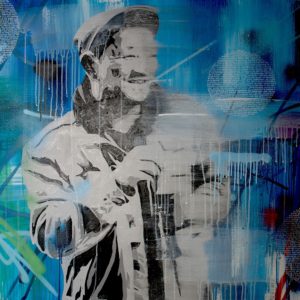


What are the challenges?
I think a lot of people, before running workshops, worry that they will be asked a question they don’t know the answer to. This was my biggest fear when I started teaching at QUT as a sessional academic. It’s okay if you don’t know. No one will lose respect for you. Just say “brilliant question – honestly I don’t know – but I’m going to research it during morning tea break, and I’ll come back to you with an answer.” We’re all human. People respect when you are truthful.
Be yourself. Be open. Tell the truth. We don’t run workshops to be the smartest in the room, we run them to help others. Who knows, you might inspire the next big street artist!”
Sarah has proven that workshops or online classes are a worthwhile endeavour for artists who wish to share their knowledge. It is also opportunity to earn more and secure your personal branding in other avenues outside mural work. “At the end of the day, I have 20 years of practice under my belt, I have a distinctive style and no one else on this planet thinks the same way I think.” No one can do what you do, sharing your knowledge inspires a new generation of artists to find their own unique style.
Want more artist tips and tricks?
Tags In
Check out top-rated local artists near you!
Are you an artist ? Sign Up










